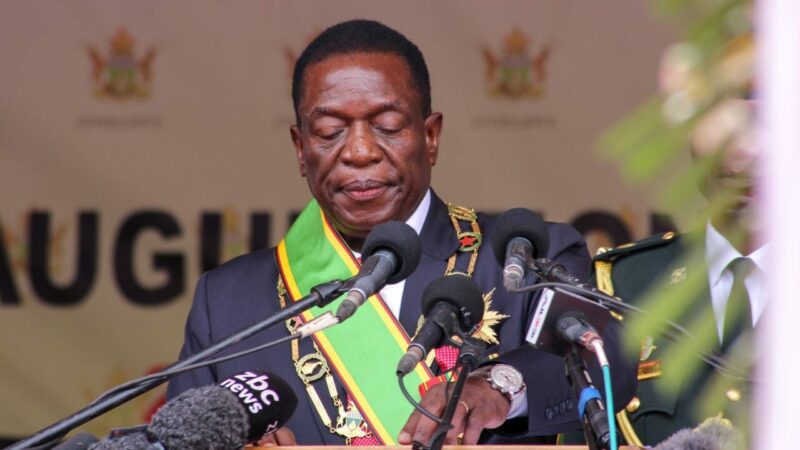The United States government has imposed targeted sanctions on Zimbabwe’s President Emmerson Mnangagwa and other high-ranking officials over allegations of corruption and human rights abuses.
The sanctions, administered by the Treasury Department’s Office of Foreign Assets Control (OFAC), specifically accuse Mnangagwa of aiding gold and diamond smuggling networks and engaging in corrupt practices. This move by the US is part of a broader strategy to recalibrate its sanctions towards Zimbabwe, focusing on individuals directly responsible for undermining the democratic process and violating human rights, rather than imposing broader sanctions that affect the Zimbabwean populace as a whole.
Detailed Allegations and Sanctions
President Mnangagwa, serving since November 2017 and recently inaugurated for a second term, faces accusations from OFAC of providing support for gold and diamond smuggling operations. “Emmerson Mnangagwa is the President of Zimbabwe and is involved in corrupt activities, in particular those relating to gold and diamond smuggling networks,” states OFAC. Mnangagwa is alleged to have directed officials to facilitate these illicit activities, accepting bribes in return for his protection. This situation is aggravated by reports of the Zimbabwean security services’ violent repression of political opponents and civil society, under Mnangagwa’s oversight.
The US sanctions extend beyond Mnangagwa to include his family, Vice President Constantino Chiwenga, retired Brig. Gen. Walter Tapfumaneyi, and several entities, marking a significant action against the Zimbabwean leadership. This follows President Joe Biden’s executive order ending the national emergency for Zimbabwe and refocusing sanctions to target specific individuals and entities responsible for corruption or human rights abuses.
Reactions and Implications
Zimbabwe’s response to the sanctions has been one of outright rejection and demands for evidence. President Mnangagwa’s spokesman, George Charamba, criticized the US’s actions, stating, “We condemn these malicious statements as completely uncalled for, defamatory, provocative, and a continuation of wanton hostilities against Zimbabwe by the US government.” Additionally, Charamba demanded that the Biden administration “provide evidence in support of these gratuitous accusations. Failure to which the administration must, without any further delay, withdraw them unconditionally.”
The US, through statements by Treasury Deputy Secretary Wally Adeyemo and Secretary of State Antony Blinken, maintains that the sanctions aim to target specific individuals and networks within the Zimbabwean government involved in corruption and human rights abuses, rather than the Zimbabwean people. “Our sanctions are not intended to target the people of Zimbabwe,” Adeyemo emphasized, indicating a strategic shift towards a more targeted sanctions regime.
The Impact on the Jewellery Industry
The imposition of sanctions on Zimbabwe’s leadership for their role in gold and diamond smuggling and human rights abuses underscores the importance of ethical sourcing and transparency in the jewellery industry. These developments highlight the complex challenges facing the industry in ensuring that supply chains are free from corruption and human rights violations. For jewellers and industry professionals, it is a stark reminder of the need to adhere to international standards and due diligence practices to prevent the flow of conflict diamonds and unethical gold into global markets.






